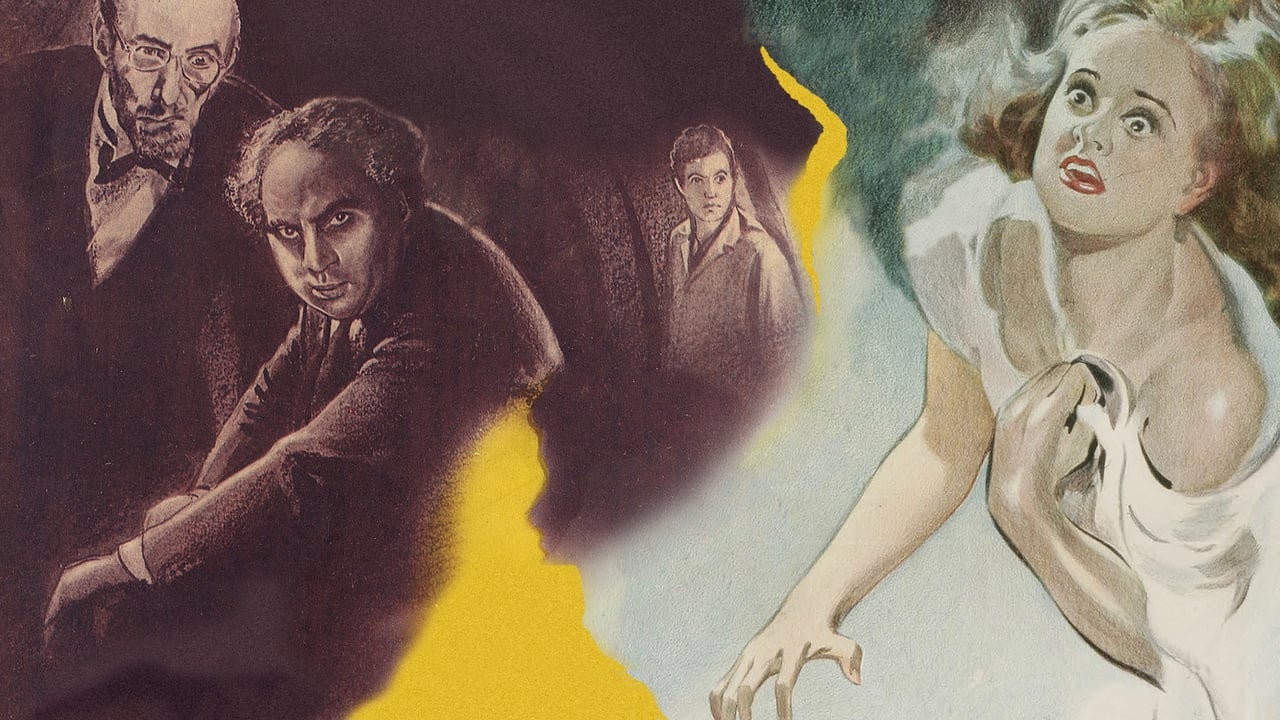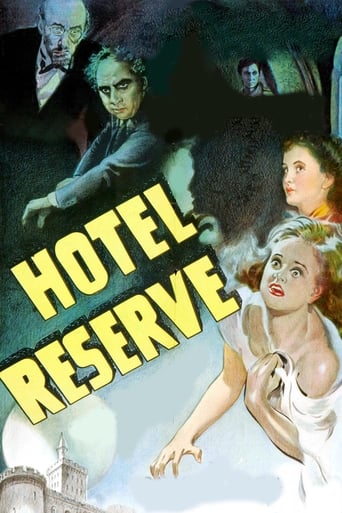Protraph
Lack of good storyline.
Majorthebys
Charming and brutal
Afouotos
Although it has its amusing moments, in eneral the plot does not convince.
Dana
An old-fashioned movie made with new-fashioned finesse.
morrison-dylan-fan
Recently re-watching the enjoyable Gris title A Touch of Larceny,I started looking for other easy-going Gris/Thrillers starring James Mason.Whilst searching round,I found that the BBC were showing a Thriller with Mason,which led to me reserving a viewing.The plot:Seeing war on the horizon in 1938, Peter Vadassy decides to apply for French citizenship,whilst going on a photographing holiday and staying at the remote Hotel Reserve. Going to collect his latest photos,Vadassy is gripped a spy who says photos of French military installations have been found on his camera. Taking a closer look,Vadassy discovers that a fellow guest has secretly switched his camera. Freed,Vadassy is told he must find out who took the photos,at the Hotel Reserve. View on the film:Taking not one,but three directors to make (!),the mix of the trio leads to a constantly unsettled changing of tone. Put together by editor Sidney Stone,the film darts between a murky Spiv tale and a jet-set Thriller abrasively, with it going from stylishly low shadows and seeping steam,to the light-Thriller sunny outdoors with no shading of dour darkness intact. Being the main person who almost keeps things together, Lennox Berkeley delivers an excellent score, (he sadly only did 4 scores) which pounds on the anxiety and unease of Vadassy's secret mission.Going into the hotel from Eric Ambler's book Epitaph For A Spy, John Davenport (who was literary editor of "The Observer newspaper) casts an eye on espionage in tense exchanges between Vadassy and his fellow guests at the hotel,with the clipped exchanges between them all signalling hidden secrets. Finishing Vadassy's mission with a twist that would later be used in a large number of Gialli, Davenport cleverly makes the twist work by having Vadassy casually build the wrong impression in swift asides. Joined by a simmering Herbert Lom and elegant Patricia Medina as Andre and Odette,James Mason gives a terrific,dashing performance as Vadassy,who spies on the hotel reserves.
Leofwine_draca
HOTEL RESERVE is a film that hasn't dated very well since its release during WW2; I'm guessing wartime audiences would have had a more emotional reaction to the storyline. It's a spy mystery set in and around a hotel in France in the years immediately preceding WW2, and the erstwhile hero of the piece is a young and breezy James Mason, who's wrongly accused of being a spy and who is then blackmailed into figuring out which of the suspects staying at the hotel is the real Nazi.Despite the intriguing set-up with its shades of Agatha Christie, this is largely a slice of hokum that goes nowhere. The running time feels at least twice as long as it actually is, and in terms of action, suspense and danger there's virtually zero to be found here. The director can just about muster up a relatively suspenseful scene at the climax, but up until that point the viewer is treated to endless scenes of talking, quasi-romance, and general boredom.Mason is an able actor but he has little to do in his central role, a role which offers little depth for any actor. Herbert Lom is better as one of the suspects, as he's able to bring his trademark darkness to the part, but the rest of the cast seems to be populated by caricatures instead of real people. There's not much here at all for modern audiences to engage with.
Mary Ann
"Hotel Reserve", a spy movie from the '40s, is thoroughly enjoyable, though it does have its faults.The story deals with a vacationing medical student (a very young and good-looking James Mason) who is mistaken for an enemy spy by the French police. Realizing he is innocent, the police department send him back to his hotel with the mission of finding out which of the guests is really the spy.Though a good film, the supporting cast is weak. Mr Mason is at his usual elegant standard, and I must say that I love the guy playing Duclos, but many of the other parts could have been better filled. I agree that it would have been interesting to see what Hitch would have done with it, but Alfred or no Alfred, "Hotel Reserve" is still very much worth seeing.
gleywong
One wonders what this movie would have become if Hitchcock had gotten his hands on it. Would he have revved up the plot, tightened up the script, recast some of the characters, put in a highway chase over the countryside interrupted by sheep, added a more appealing female interest for Mason? The climb up to the roof at the end, the strong lighting and direct closeups, the art and photographic direction(seemingly uncredited to one of the directors),as well as the music score and the general "look" of the film, not to mention James Mason's compelling presence all had the ingredients for a potential Hitchcockian thriller, but something is missing here. The plot's not that complicated (certainly not like "The Lady Vanishes") and there seems not to be enough risk or sense of danger (certainly not like "The 39 Steps")to Mason's life, although there is suspense and surprise along the way. One big weakness is the supporting cast. The young lady's character (can't even remember her name) isn't developed enough, nor does she have sufficient charm or sex appeal, as a Hitchcockian heroine would.
Still one watches it for Mason, before he has developed any overt mannerisms or been sadly type-cast as a villain. He seems to have made a number of these not-quite-up-to-snuff pictures in his career. Was he hard up? why didn't Hitchcock cast him and why didn't he ever accept a Powell & Pressburger offer? His presence on any number of these "grade-b" films, including the brief appearance in "Madame Bovary" (with Jenifer Jones), for example, or in the disappointing "Mayerling," adds a sense of gravitas to any of the proceedings in which he appeared, but the scripts and directors fail him, if not the cast.Fortunately, he can be remembered for his appearance as Captain Nemo in "Twenty Thousand Leagues under the Sea," and Sir Randolph Nettleby in "Shooting Party," both of which tapped his natural dignity and aristocratic bearing and surrounded him with a worthy cast. See those for Mason at his best.Of four stars****, two and a half.

